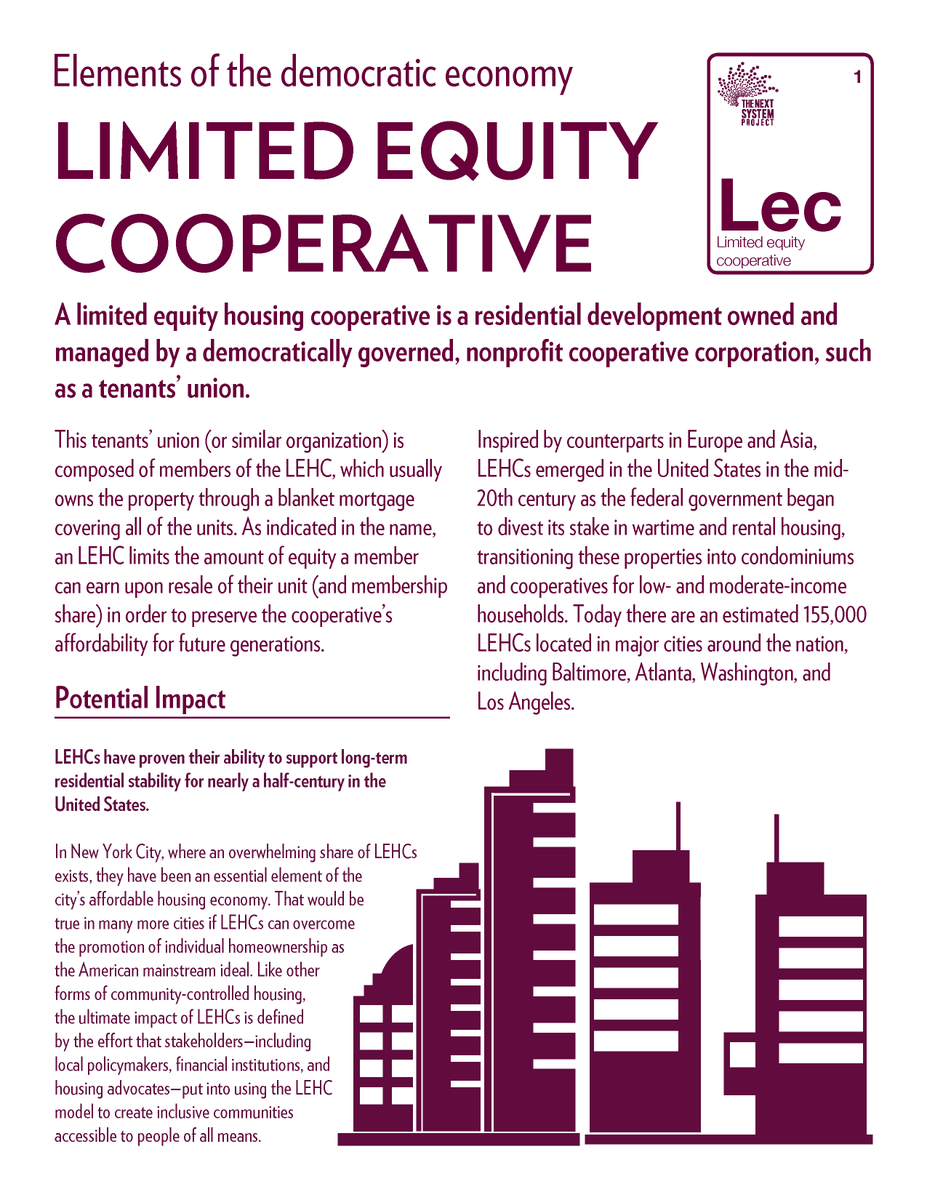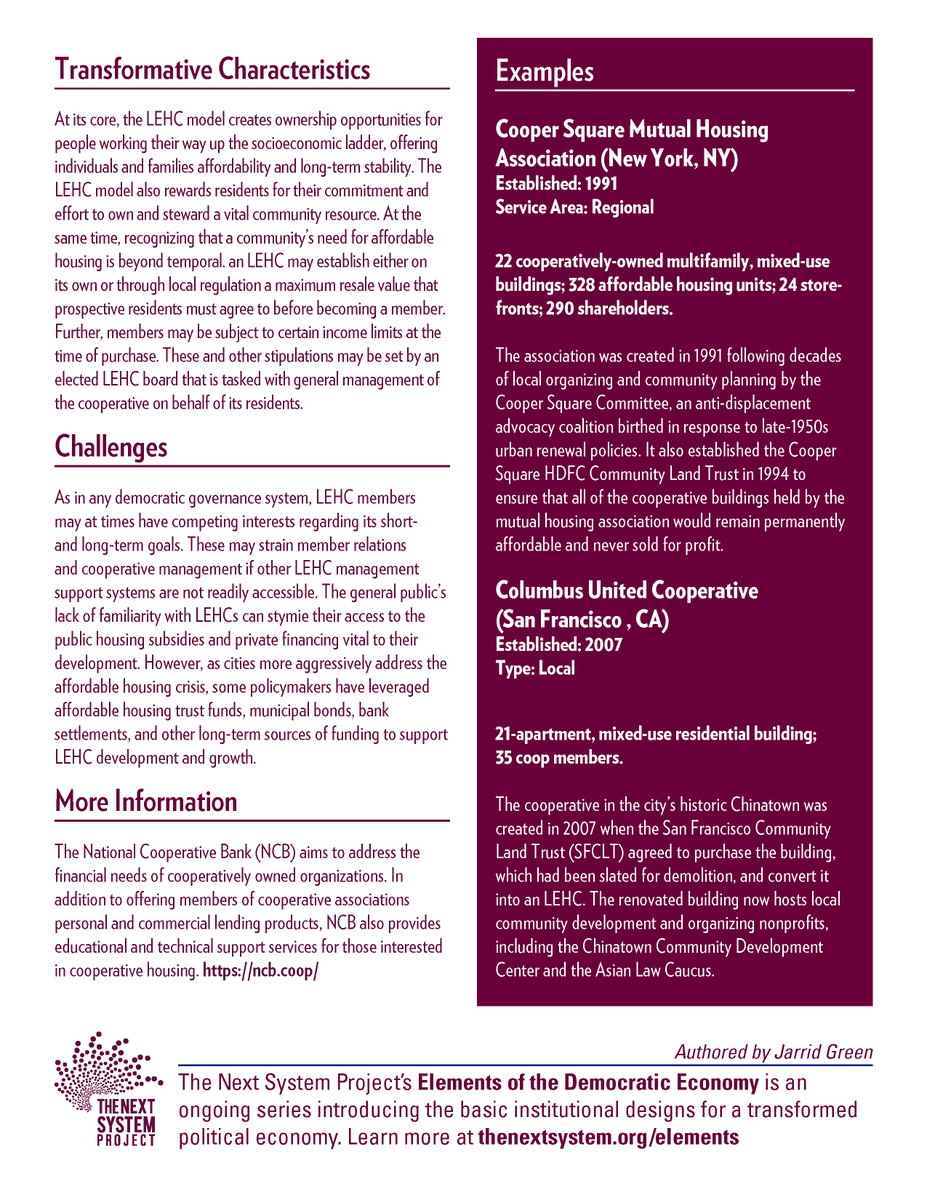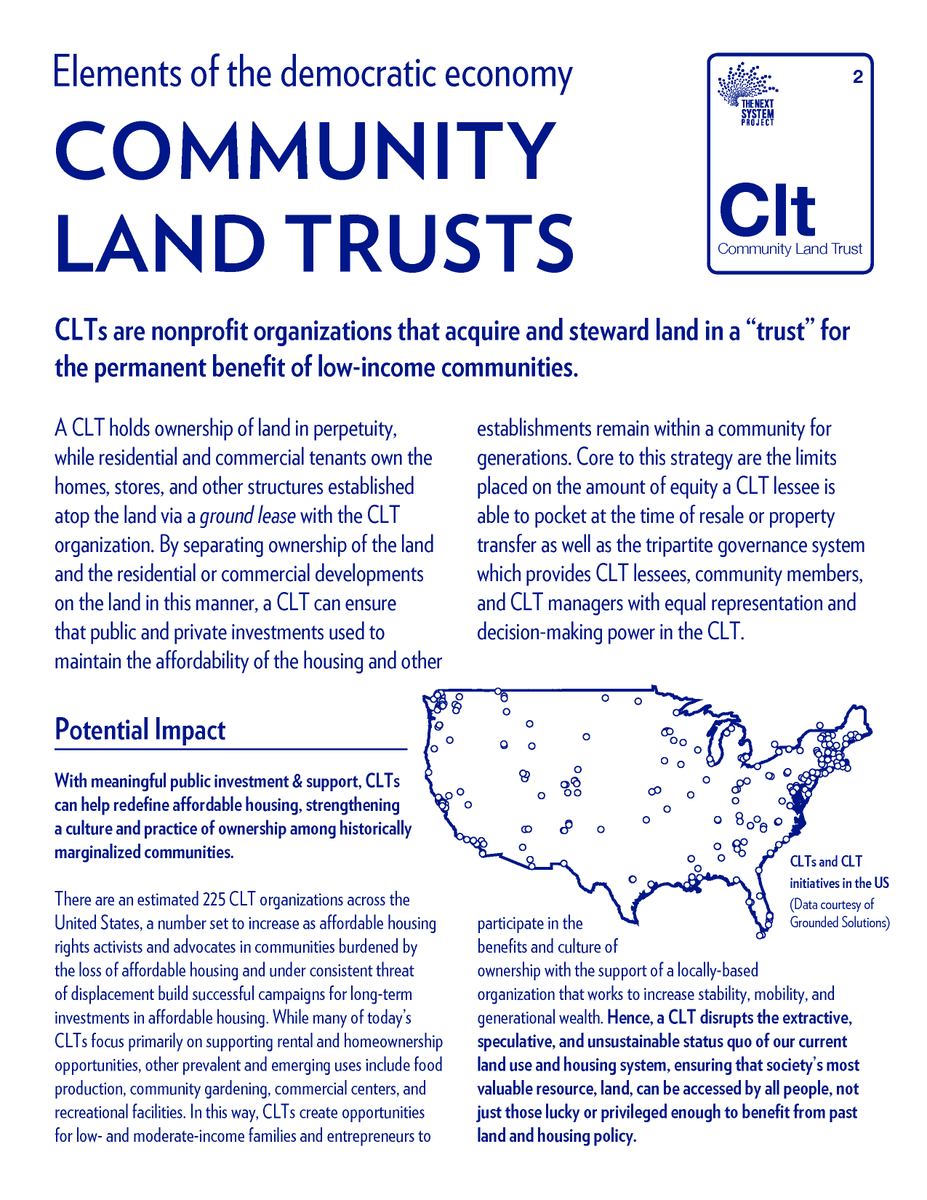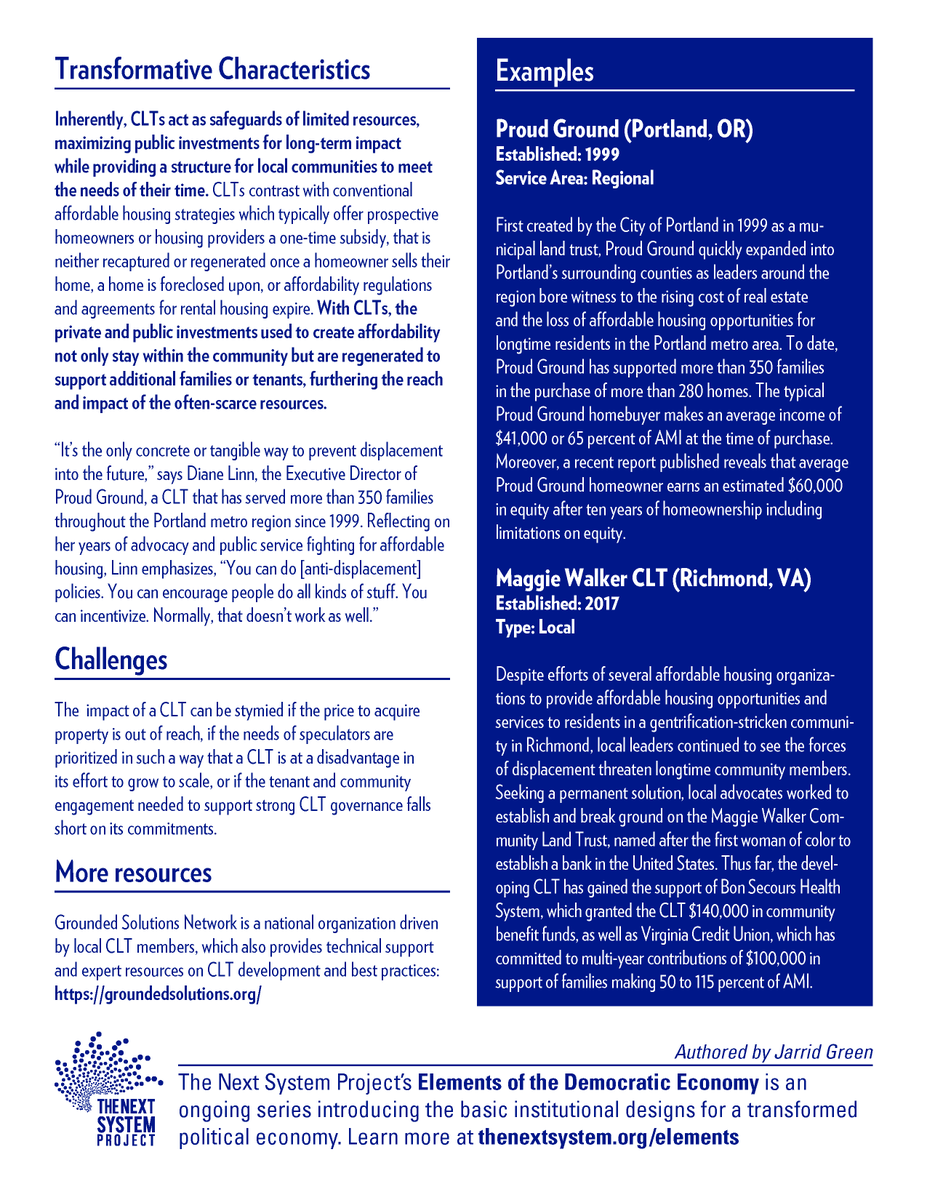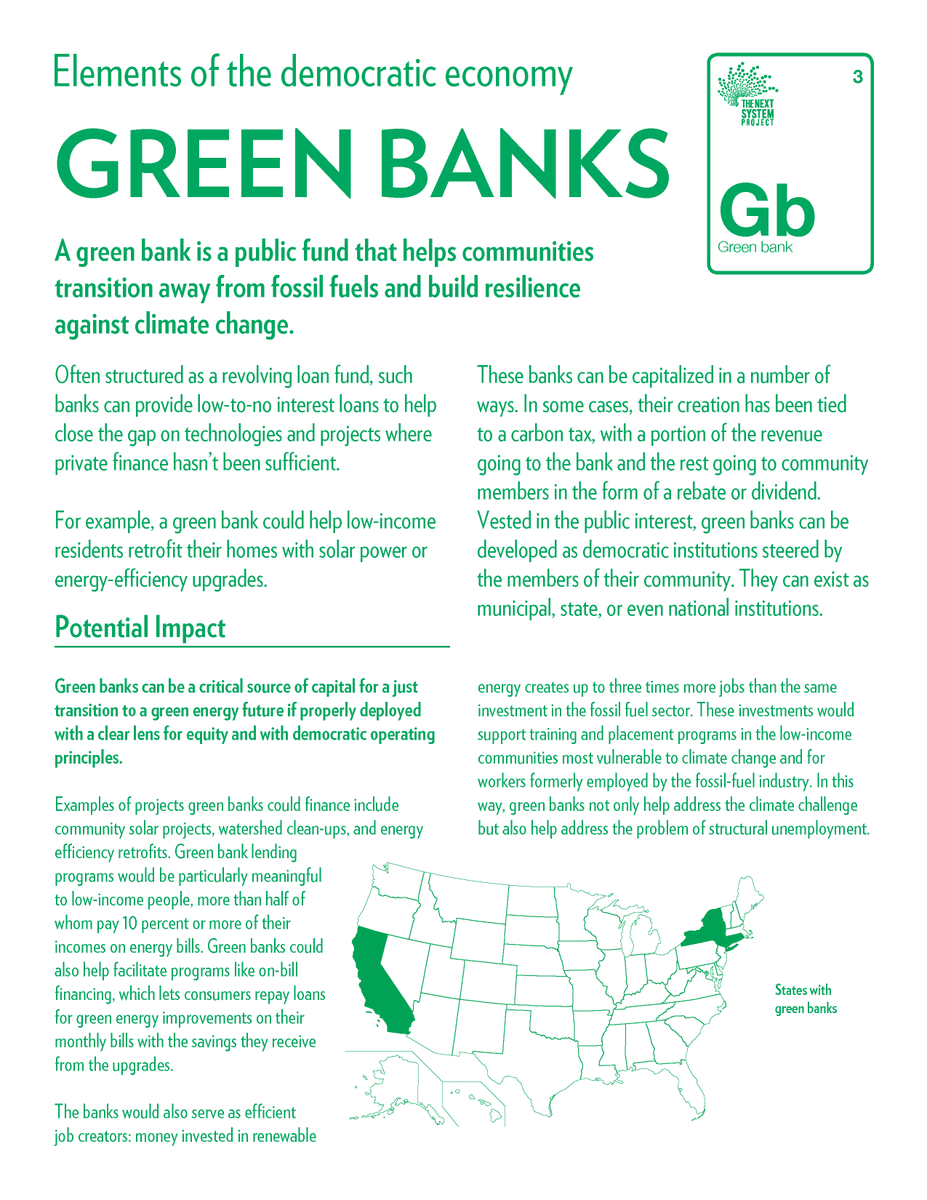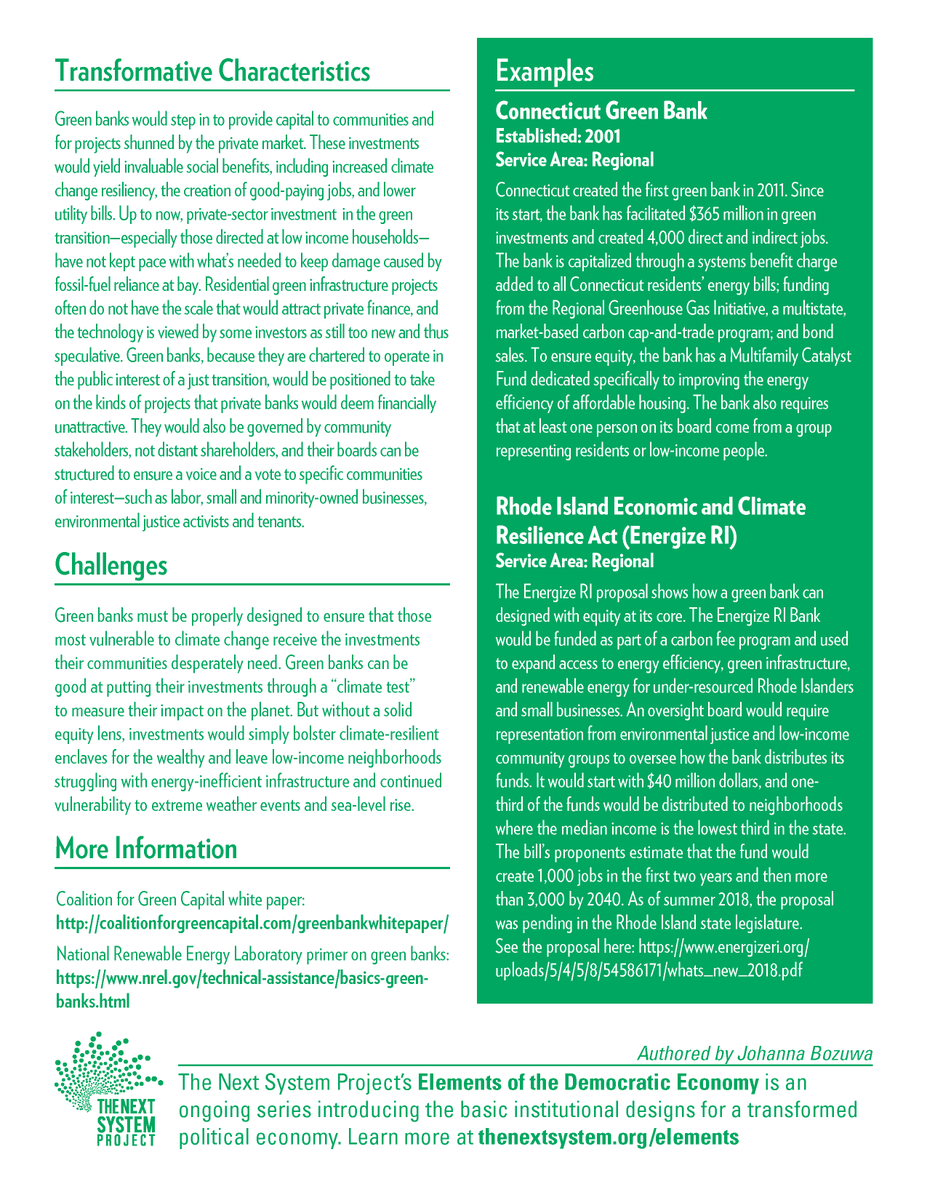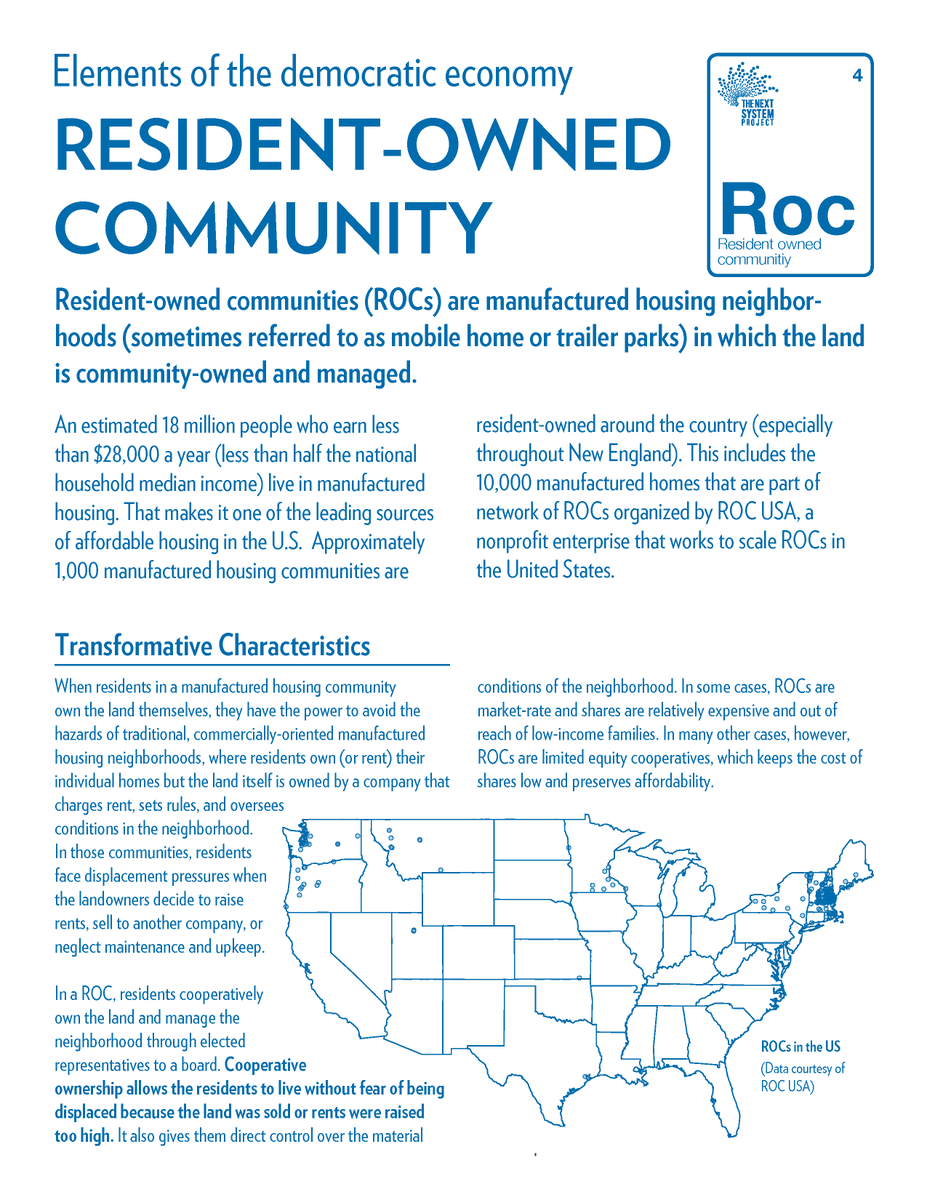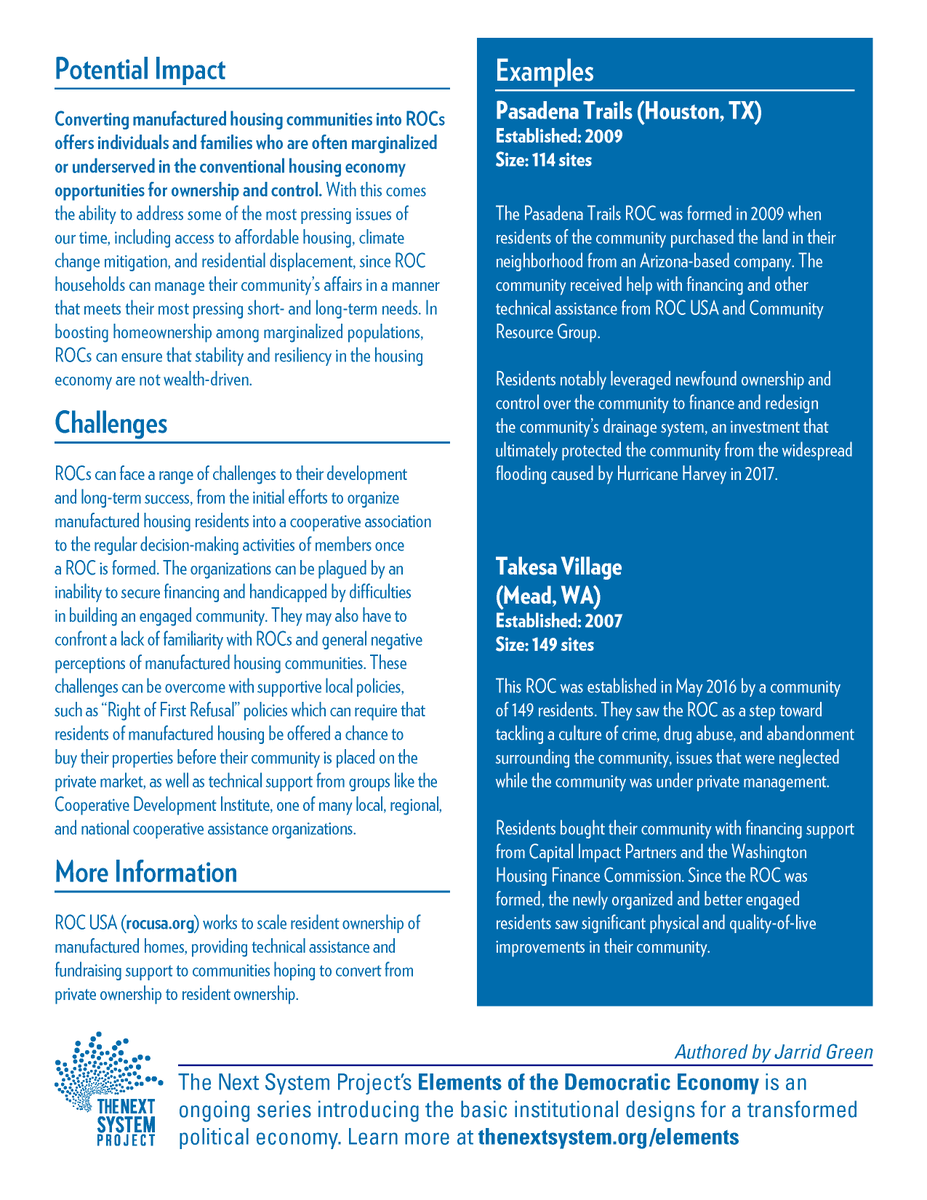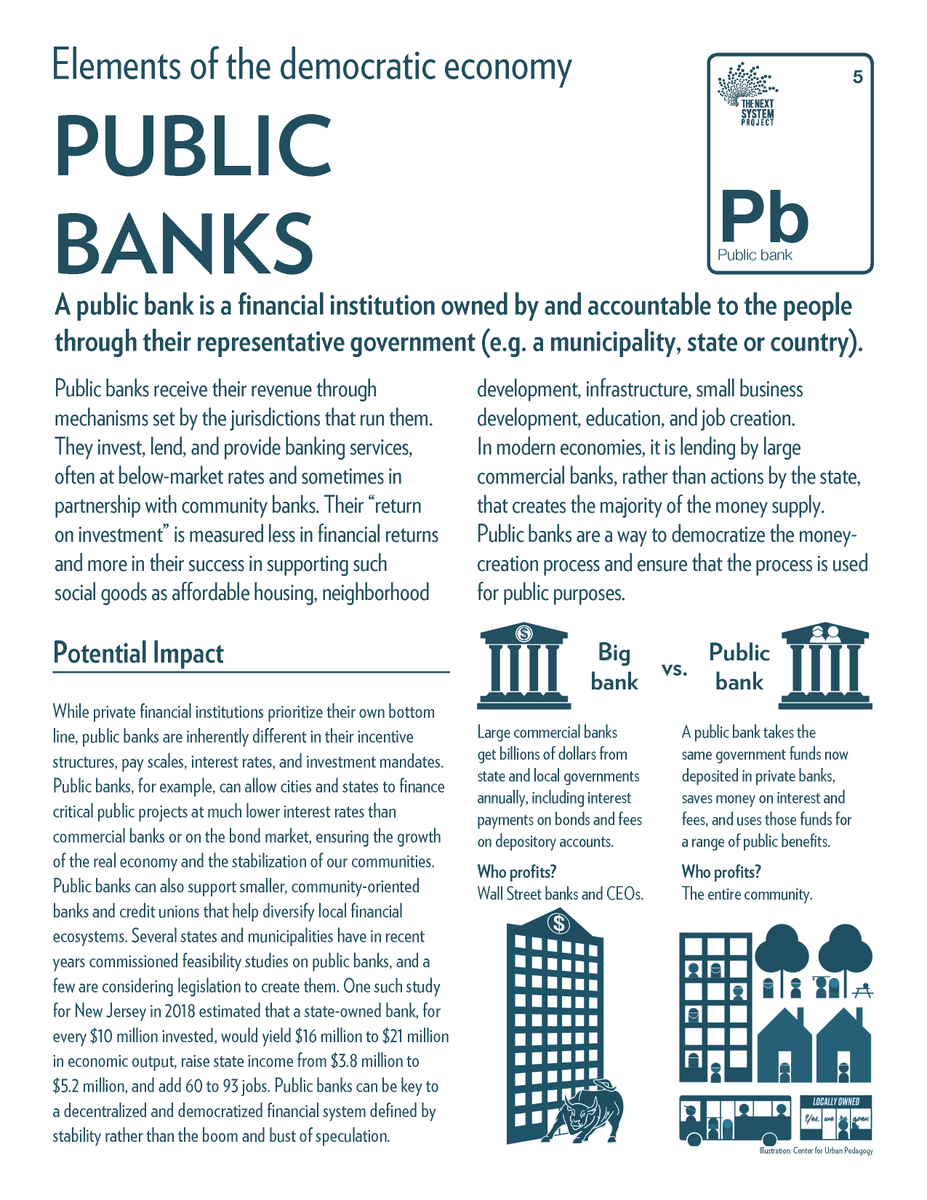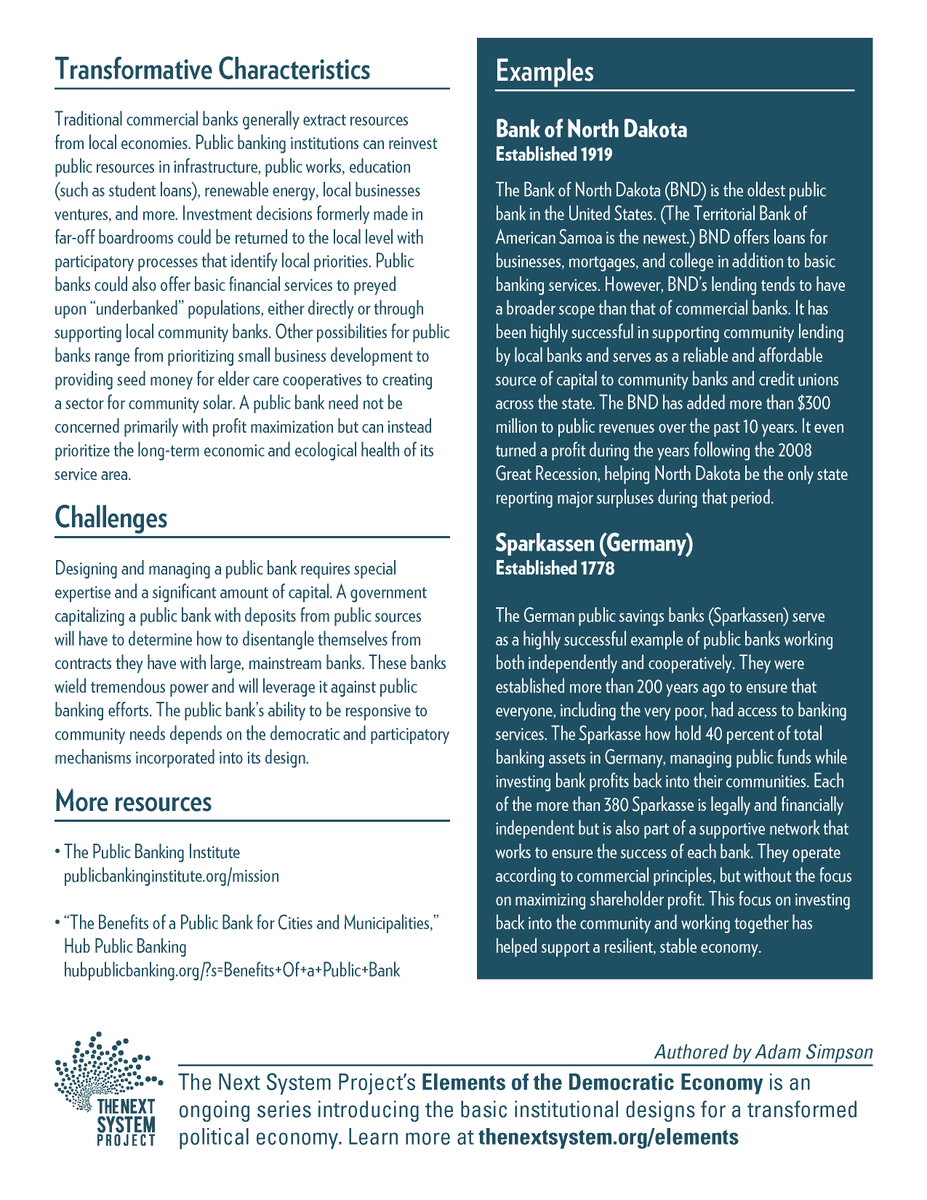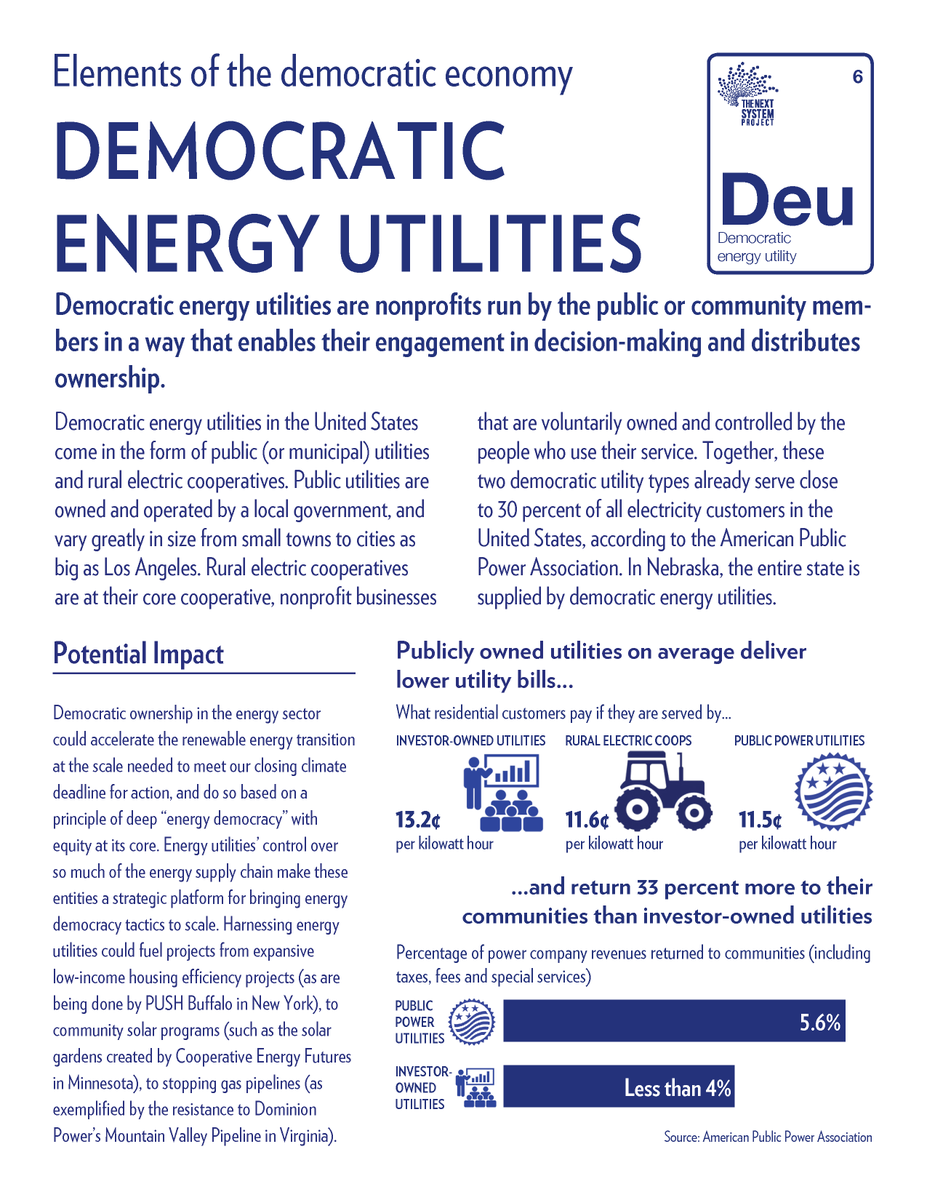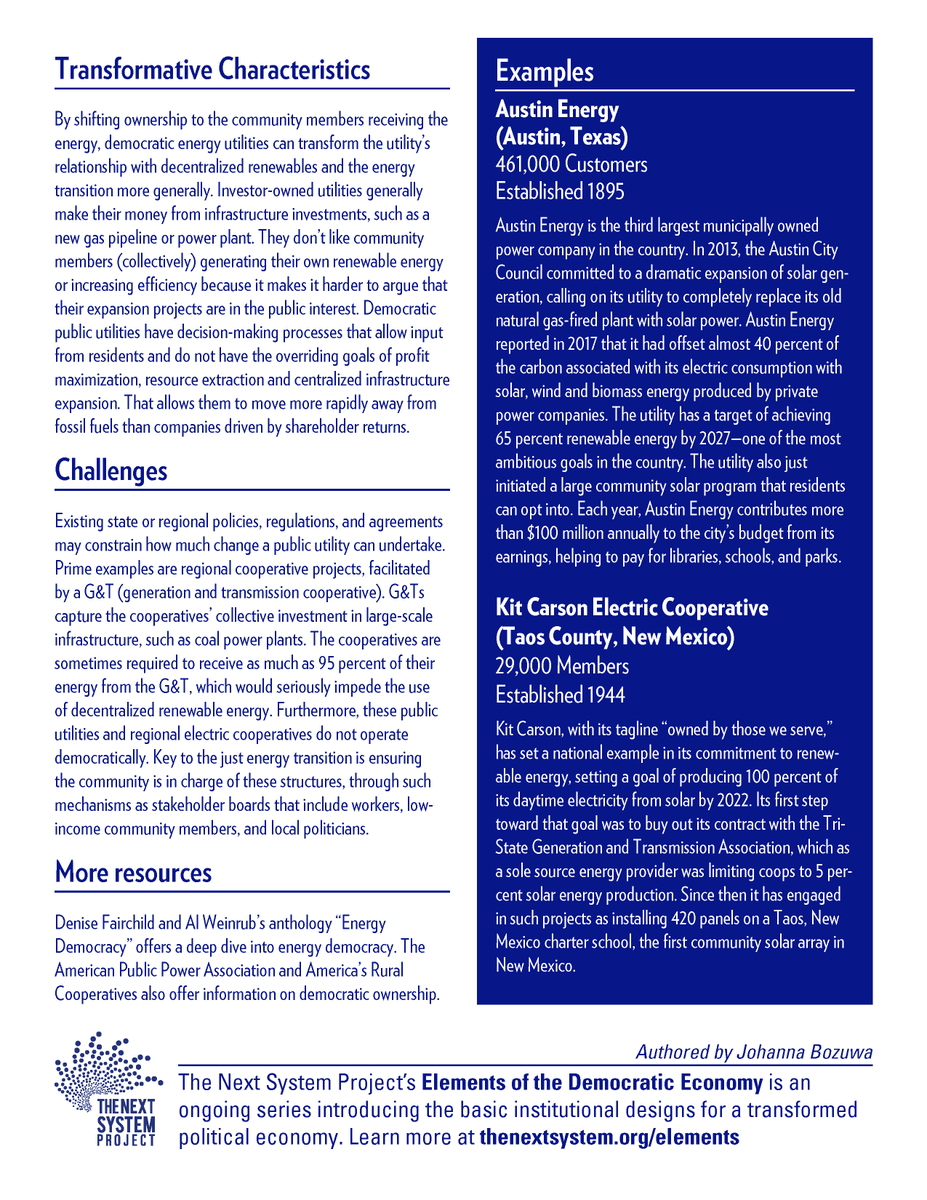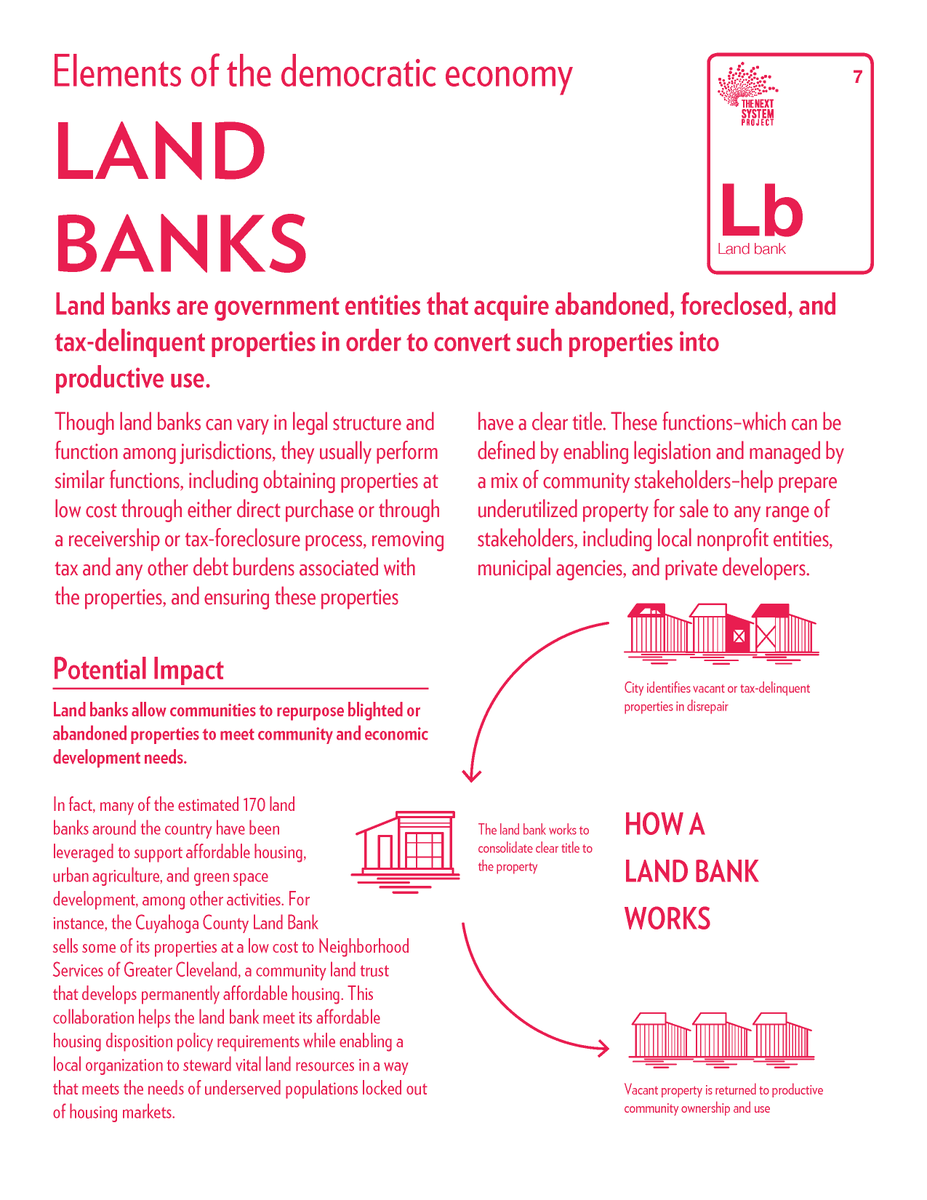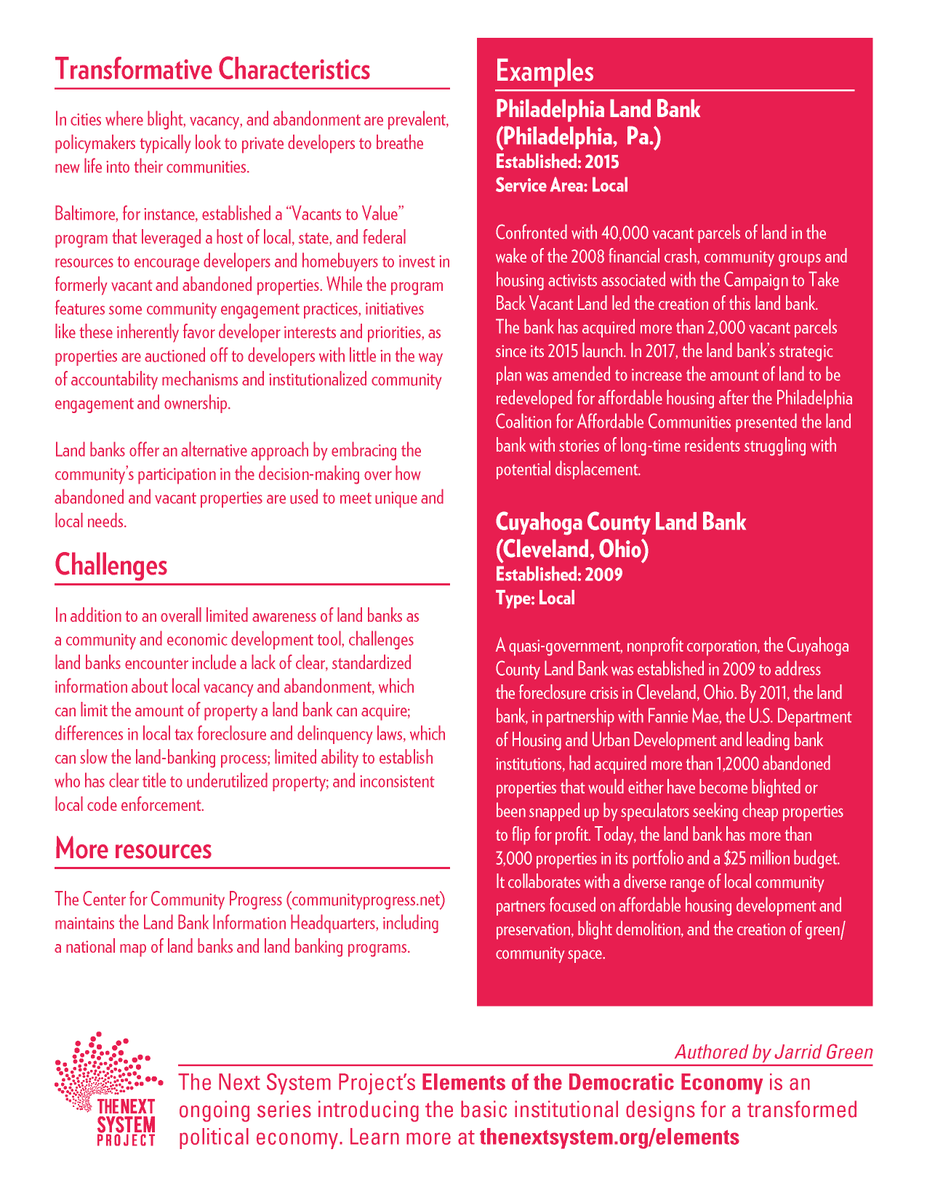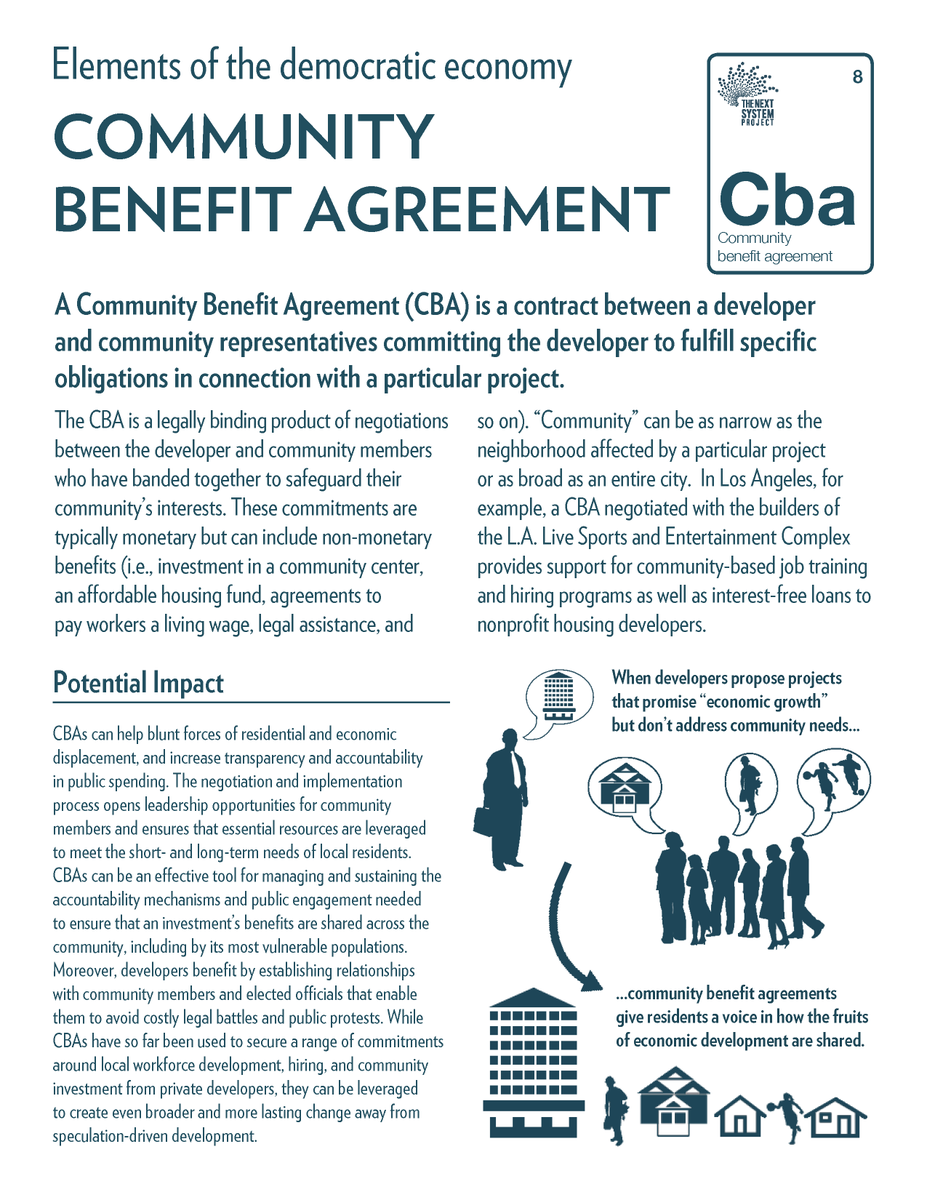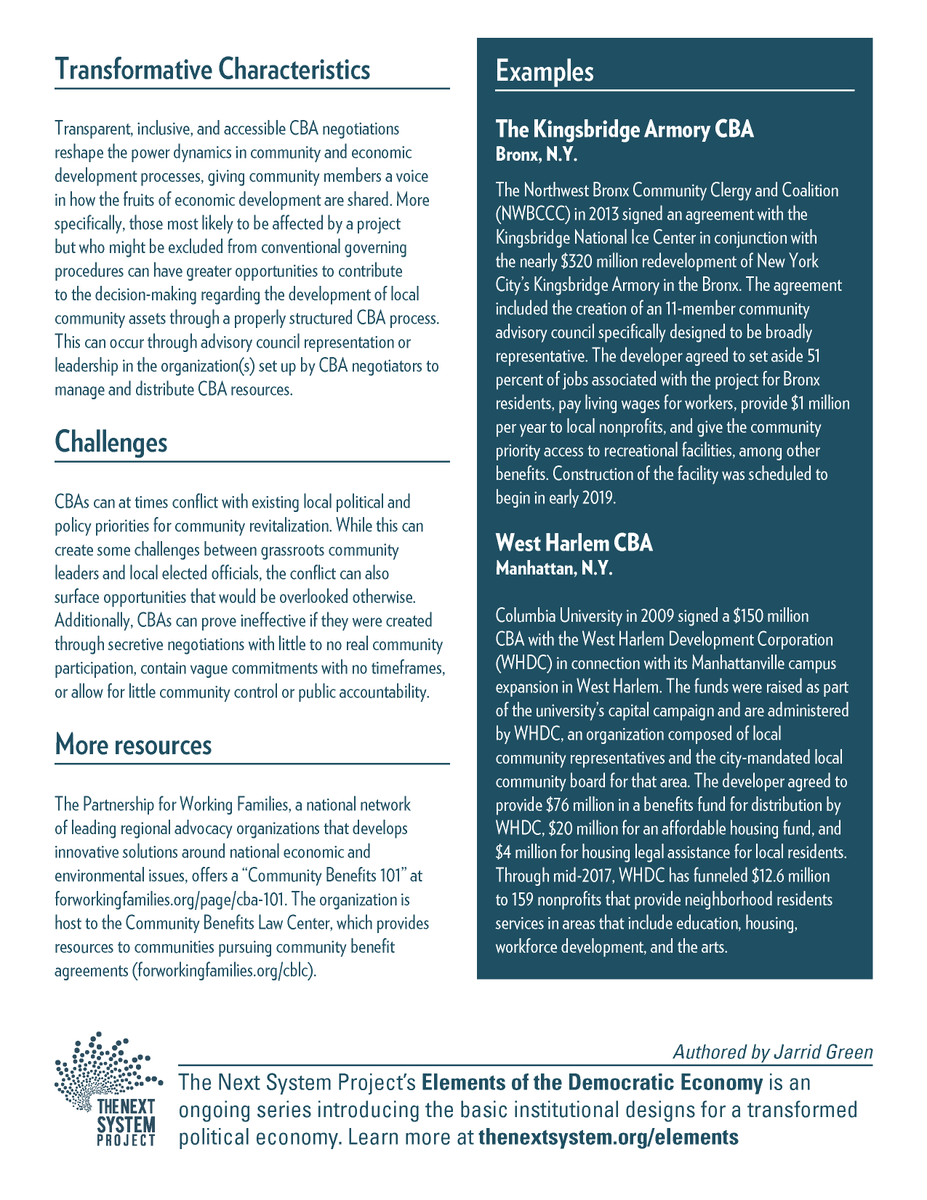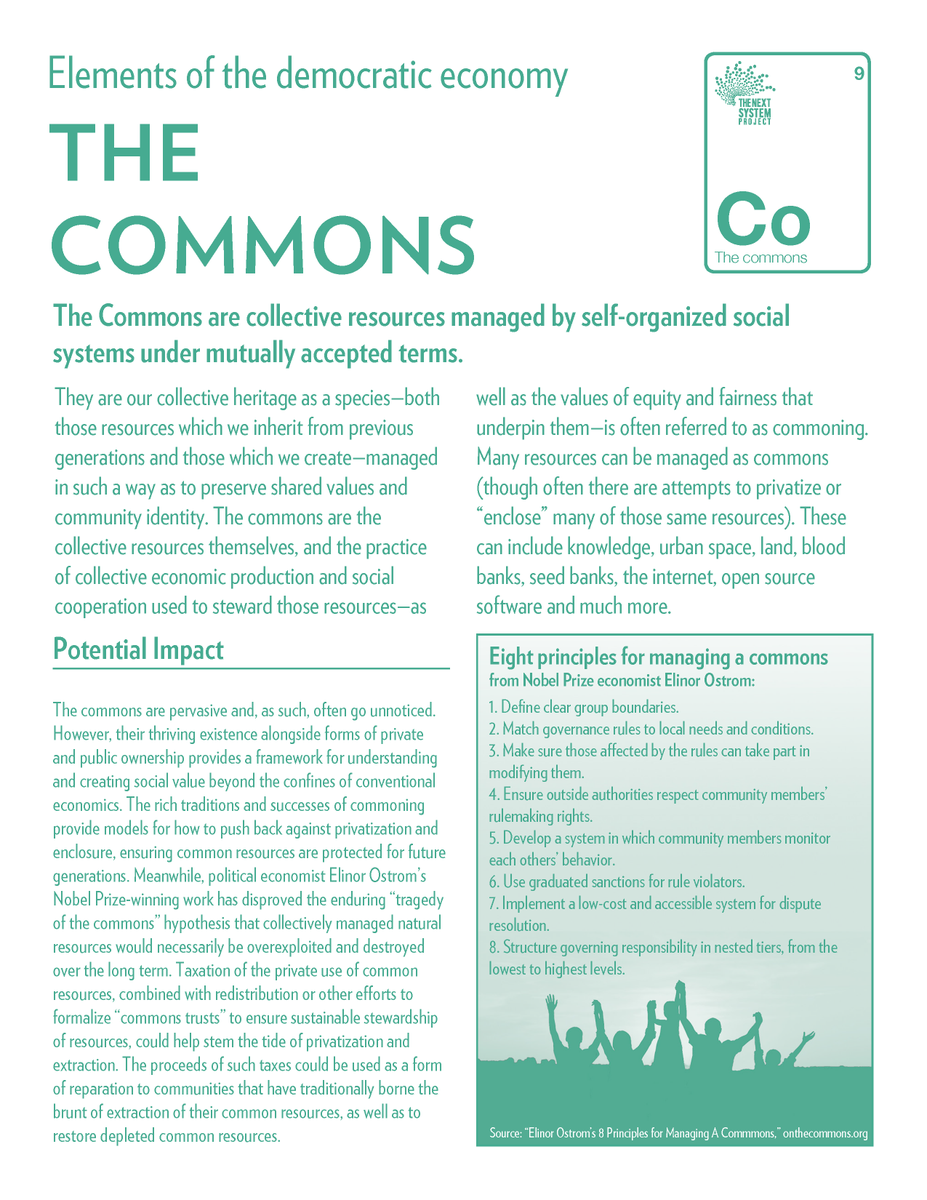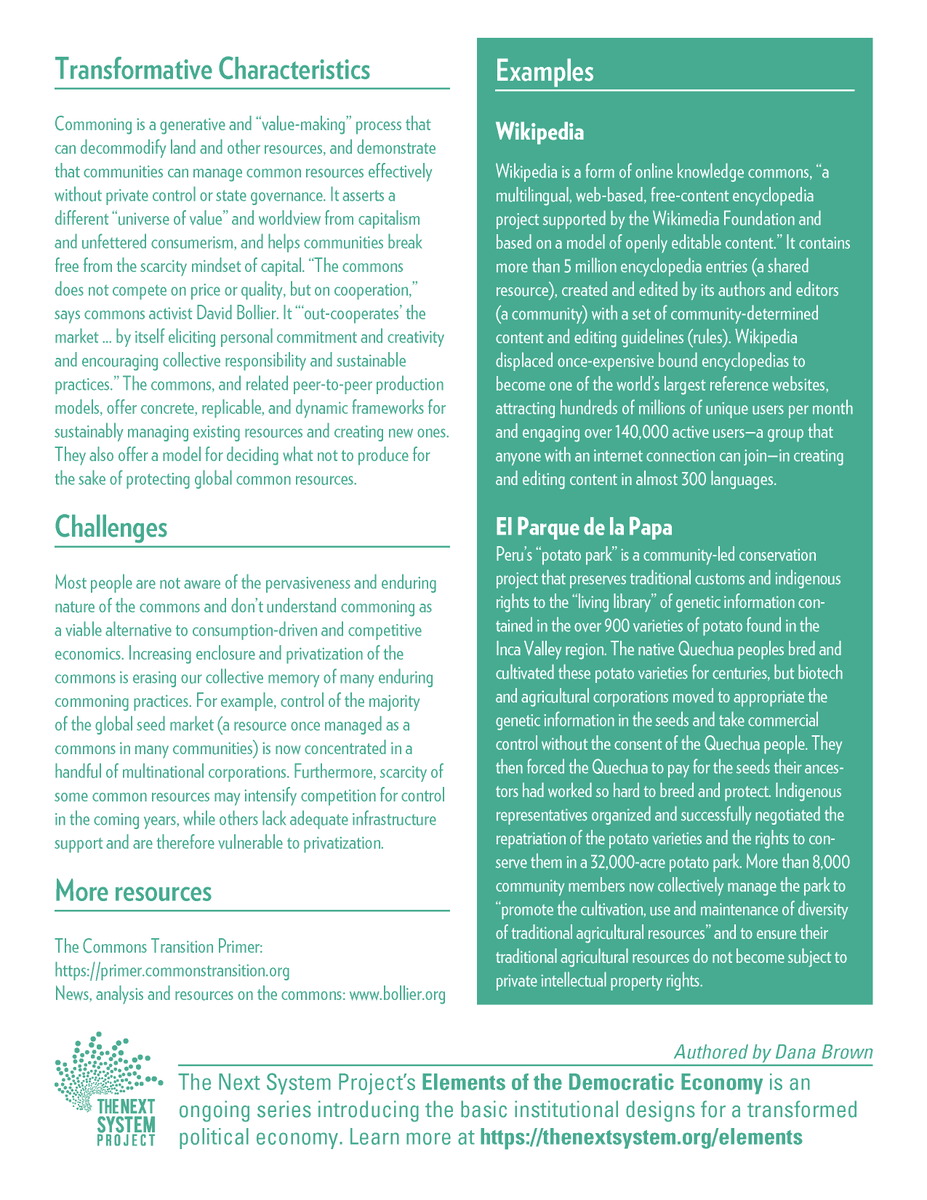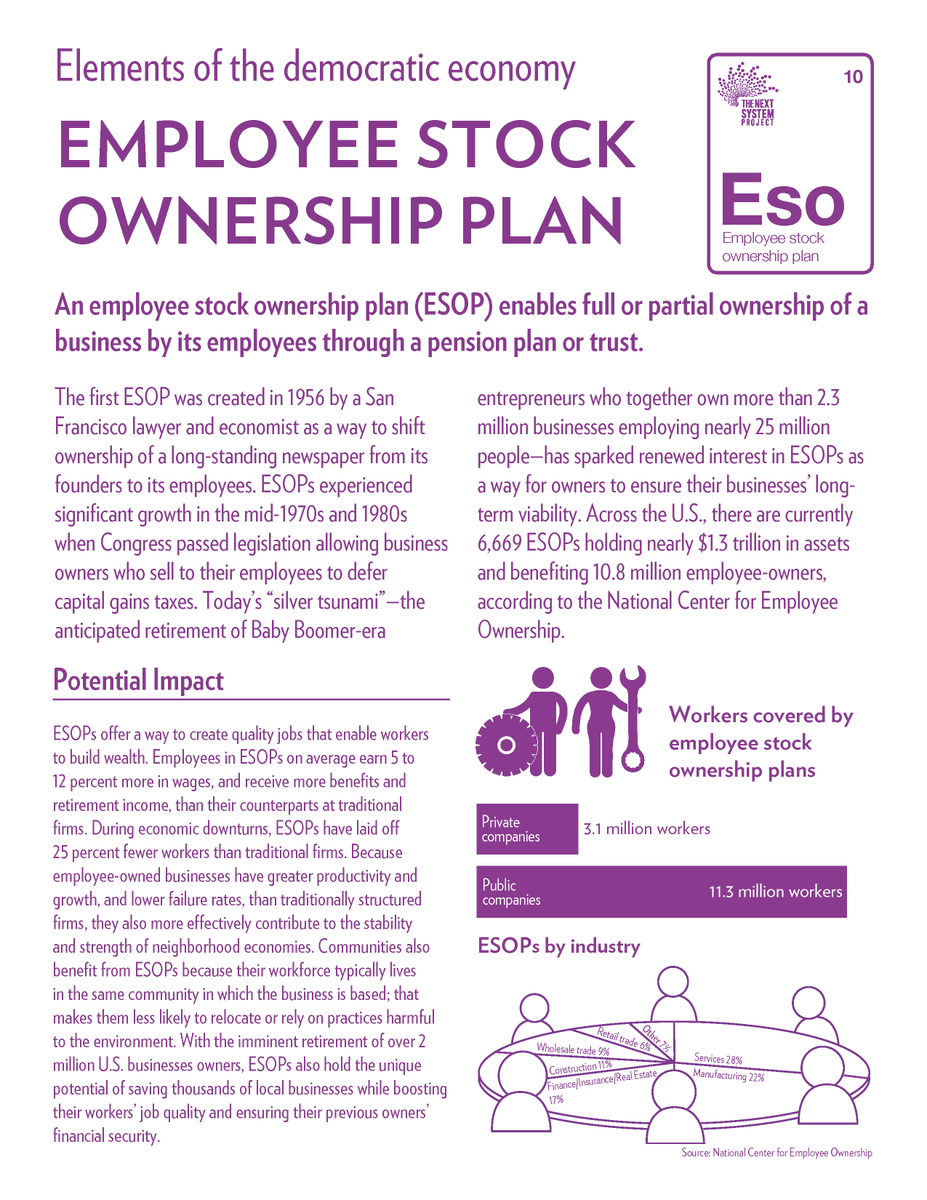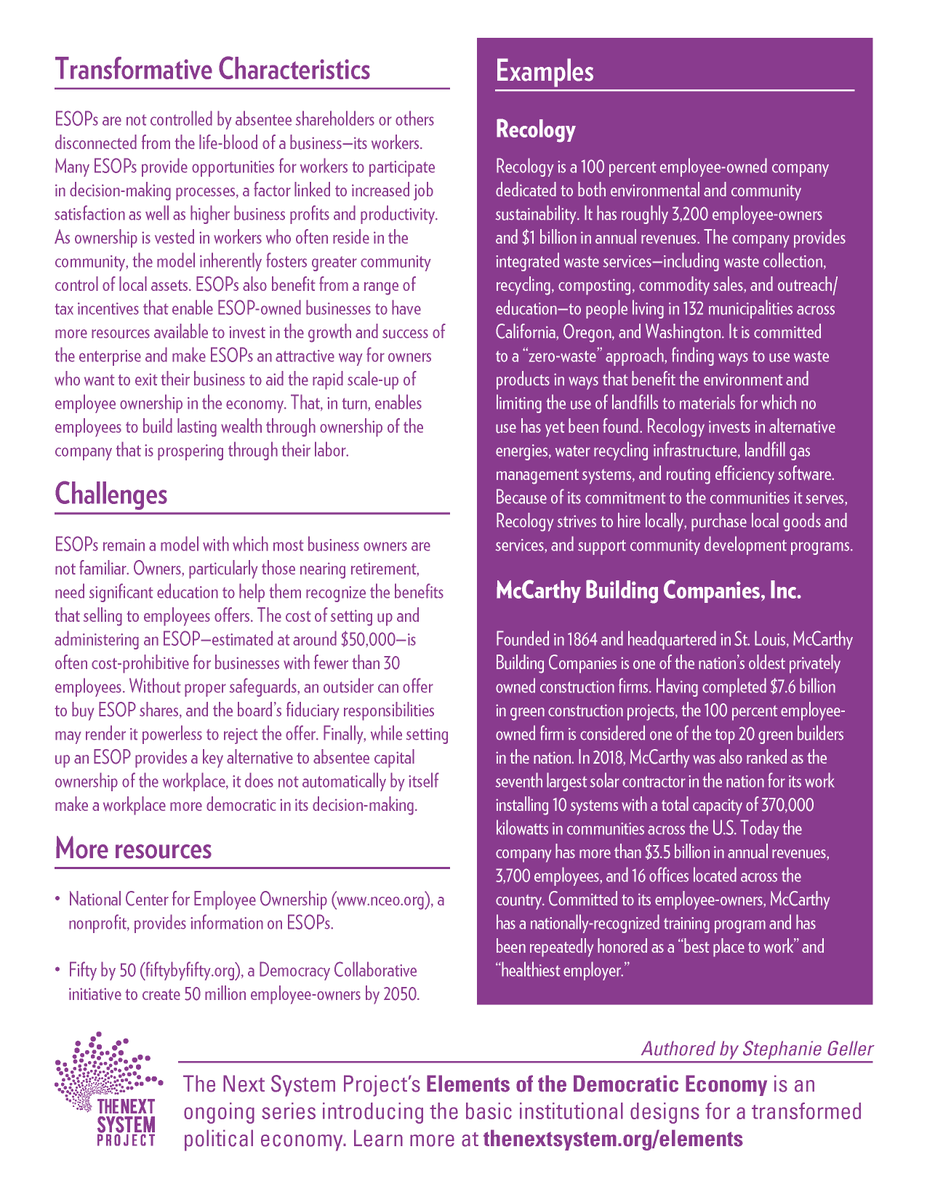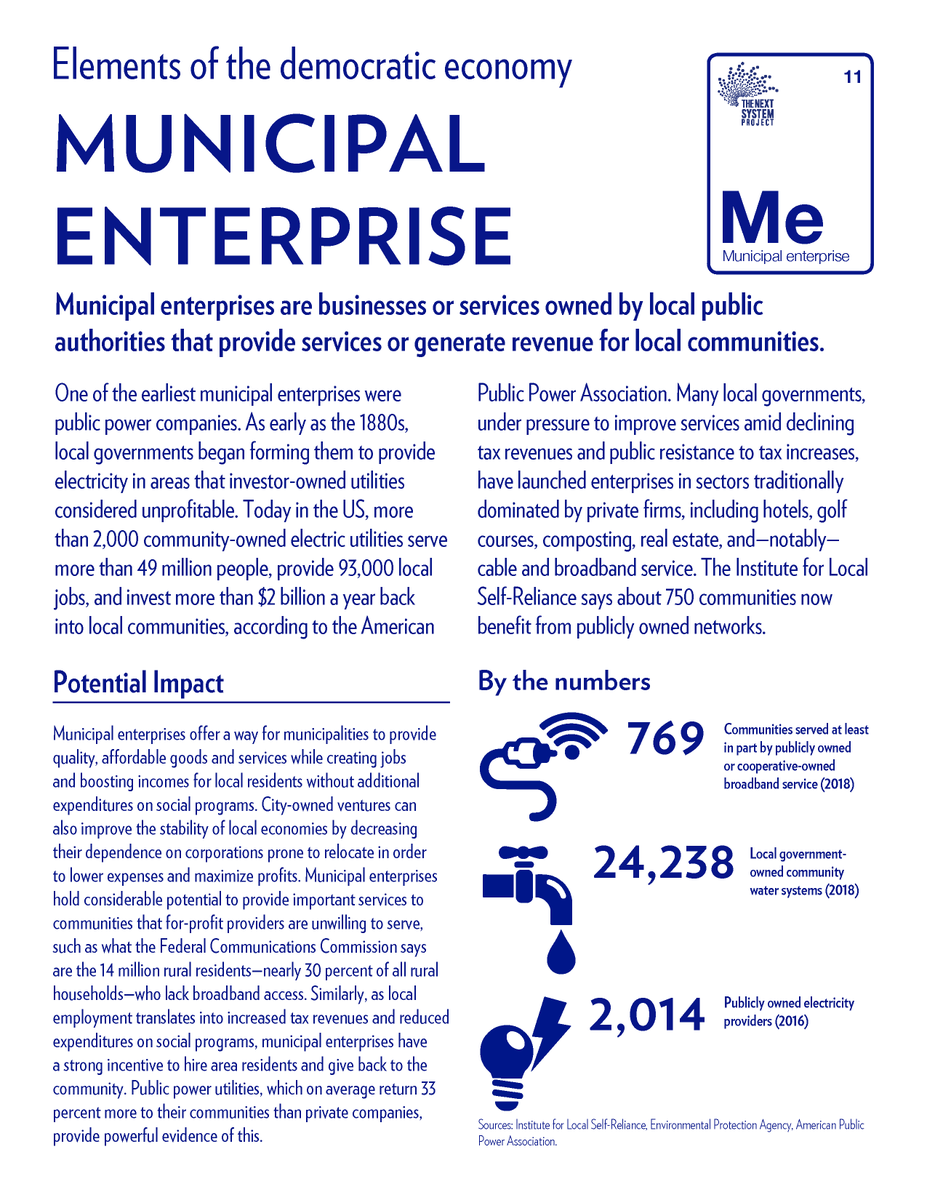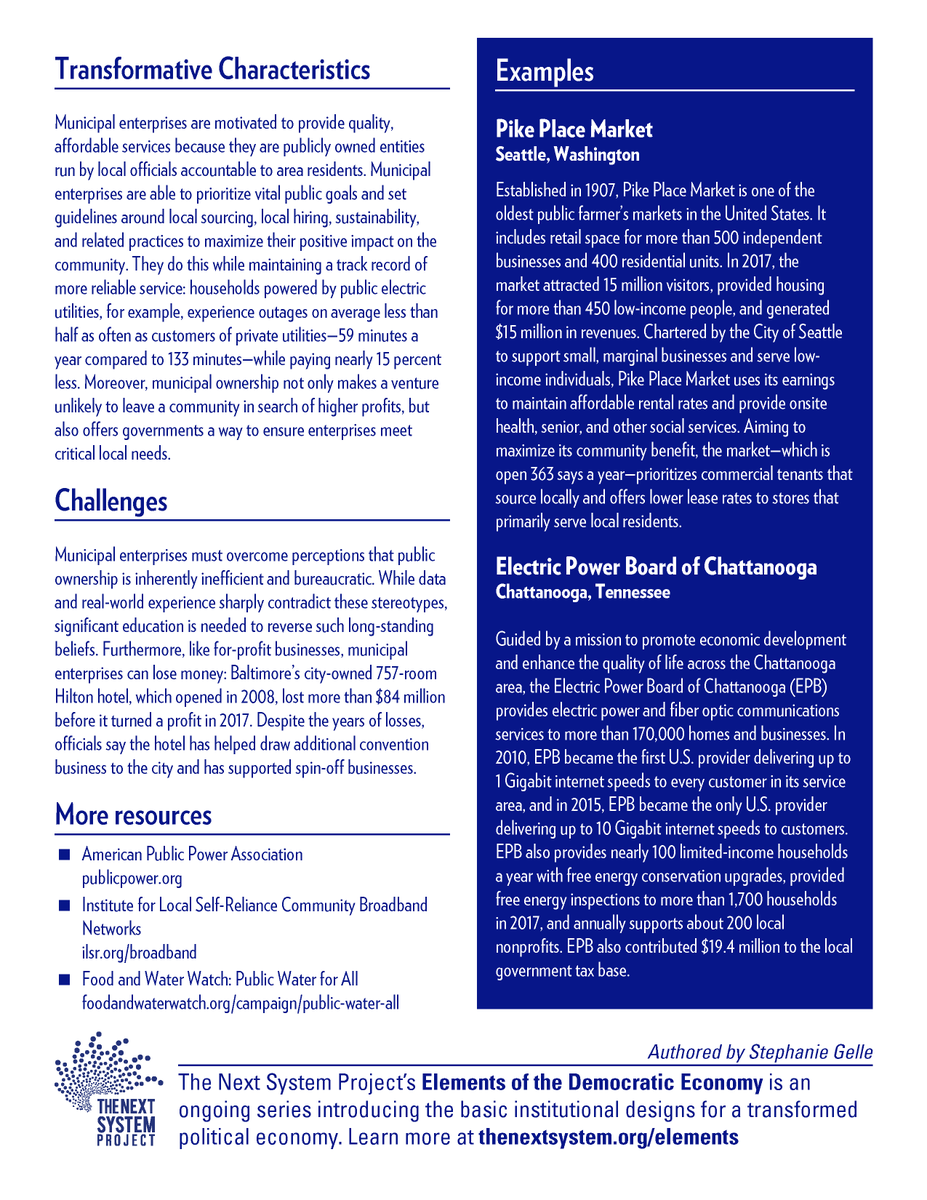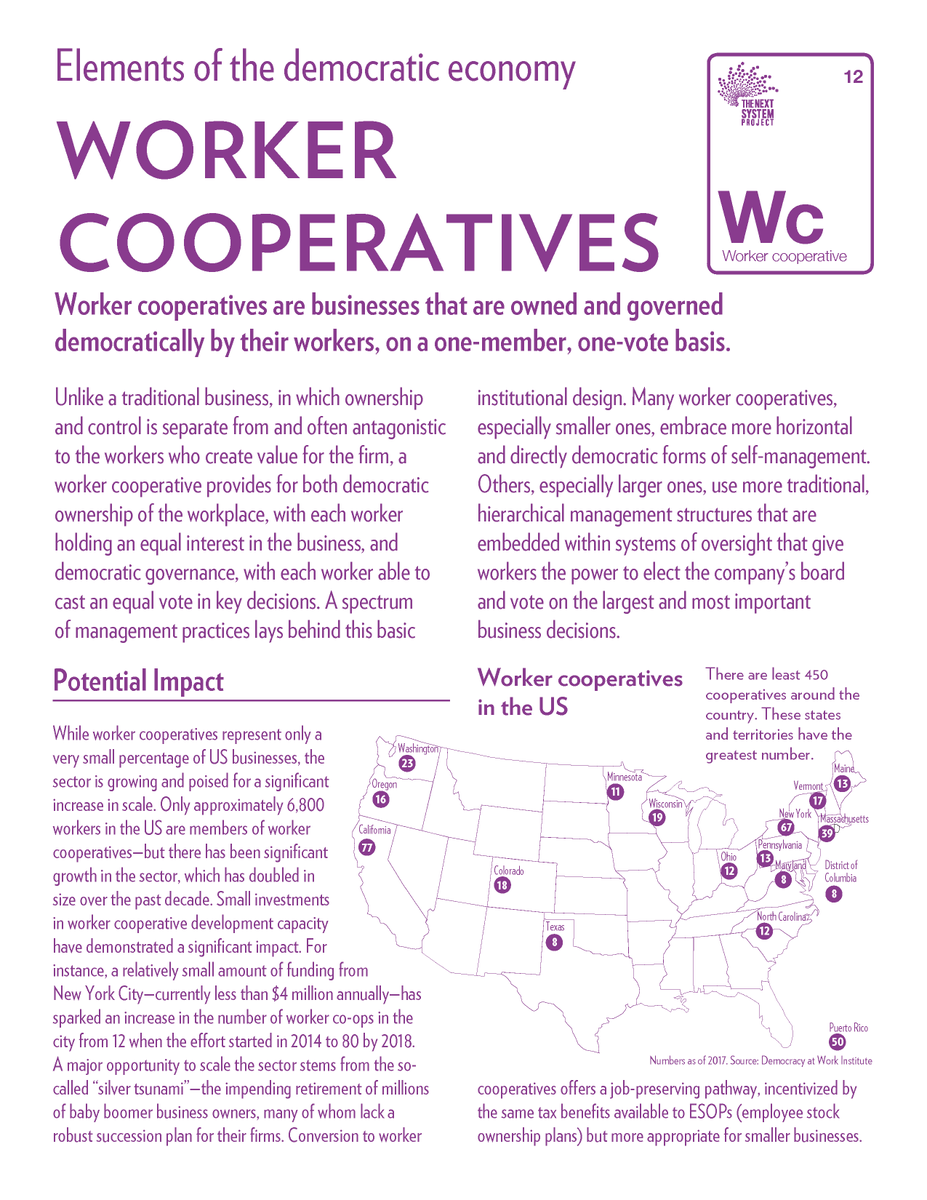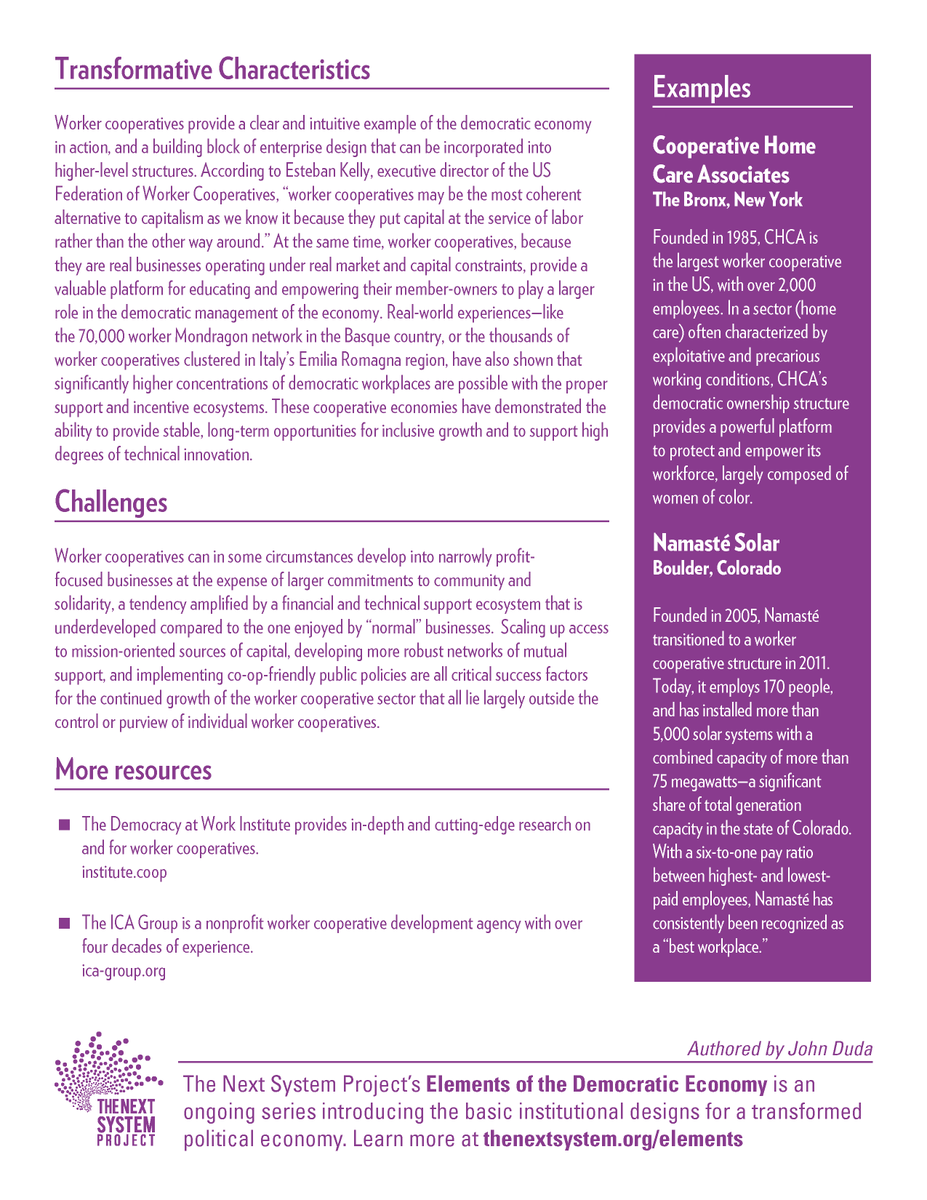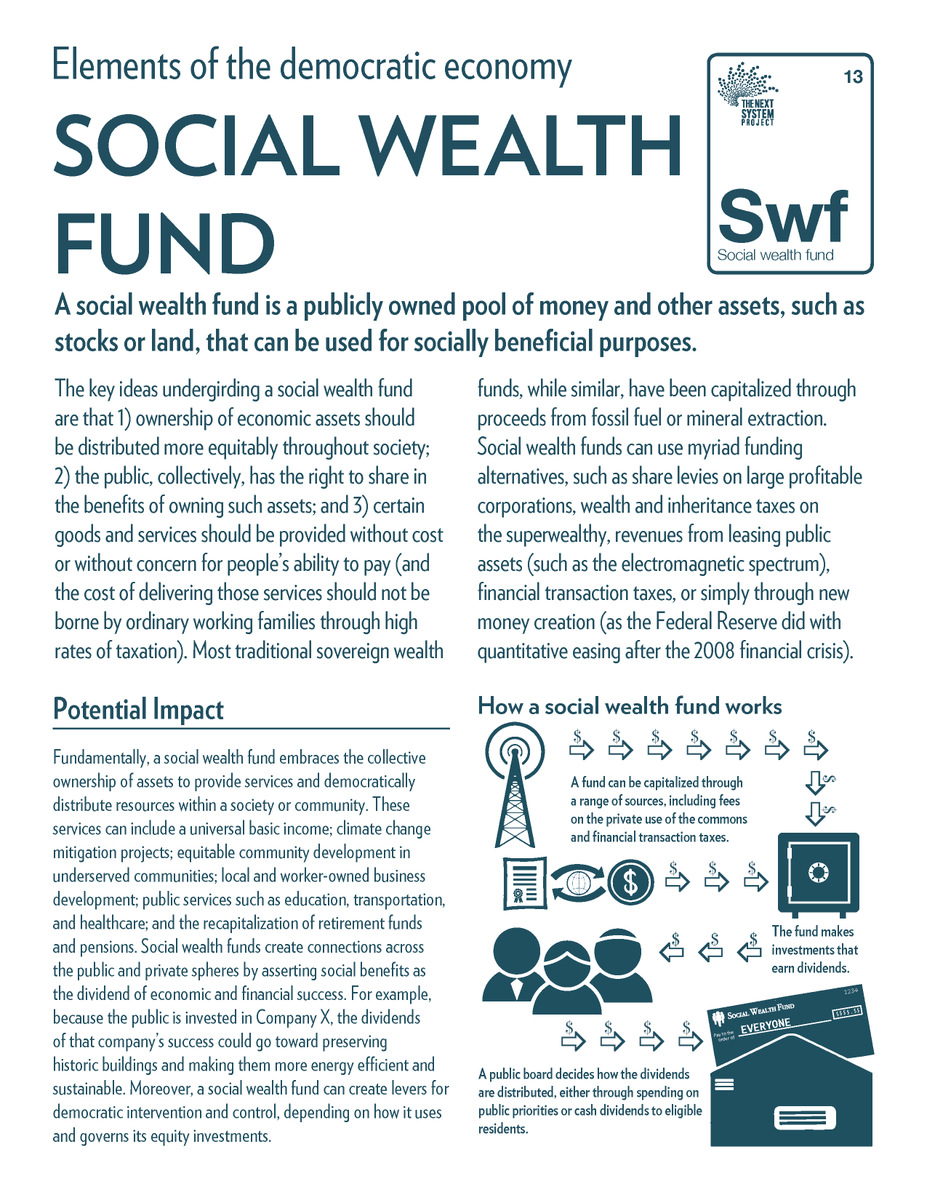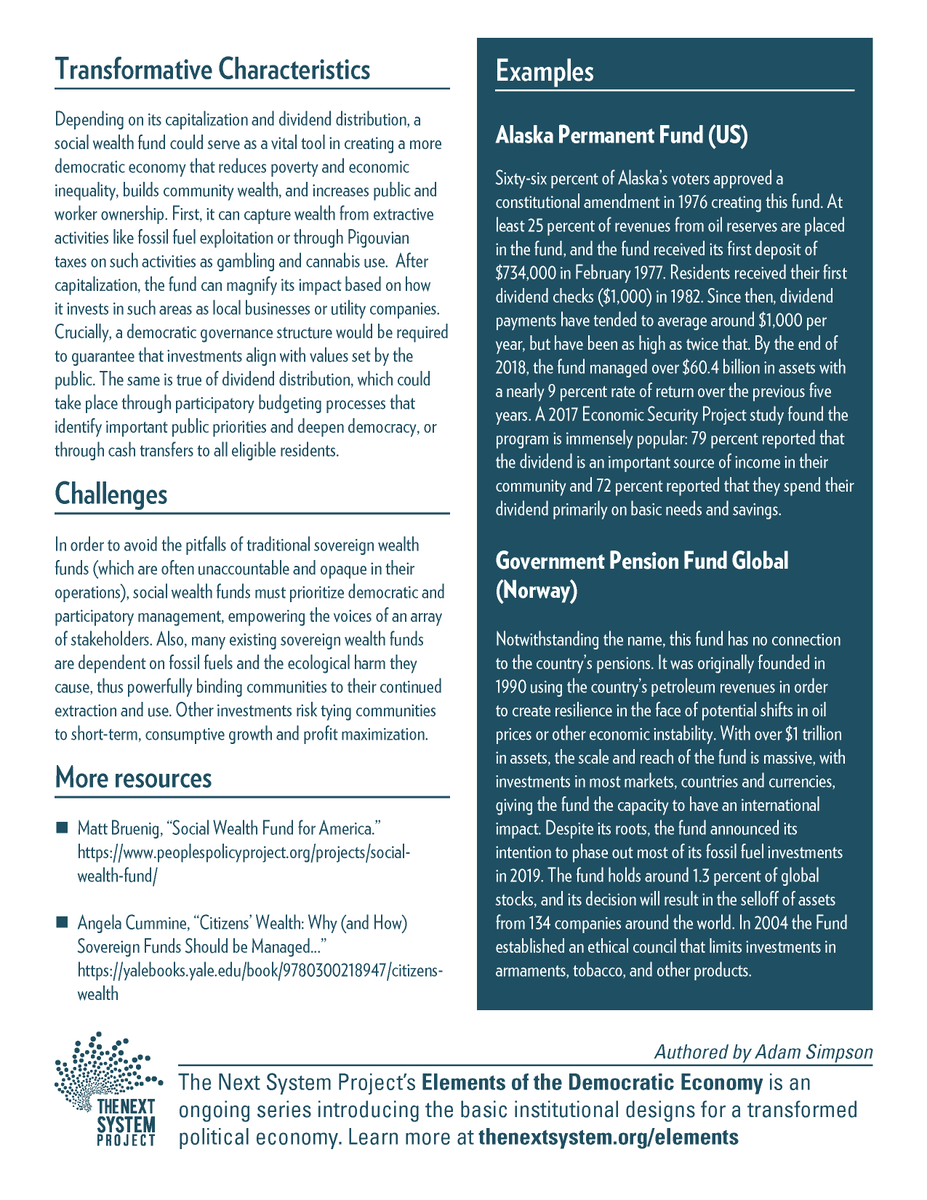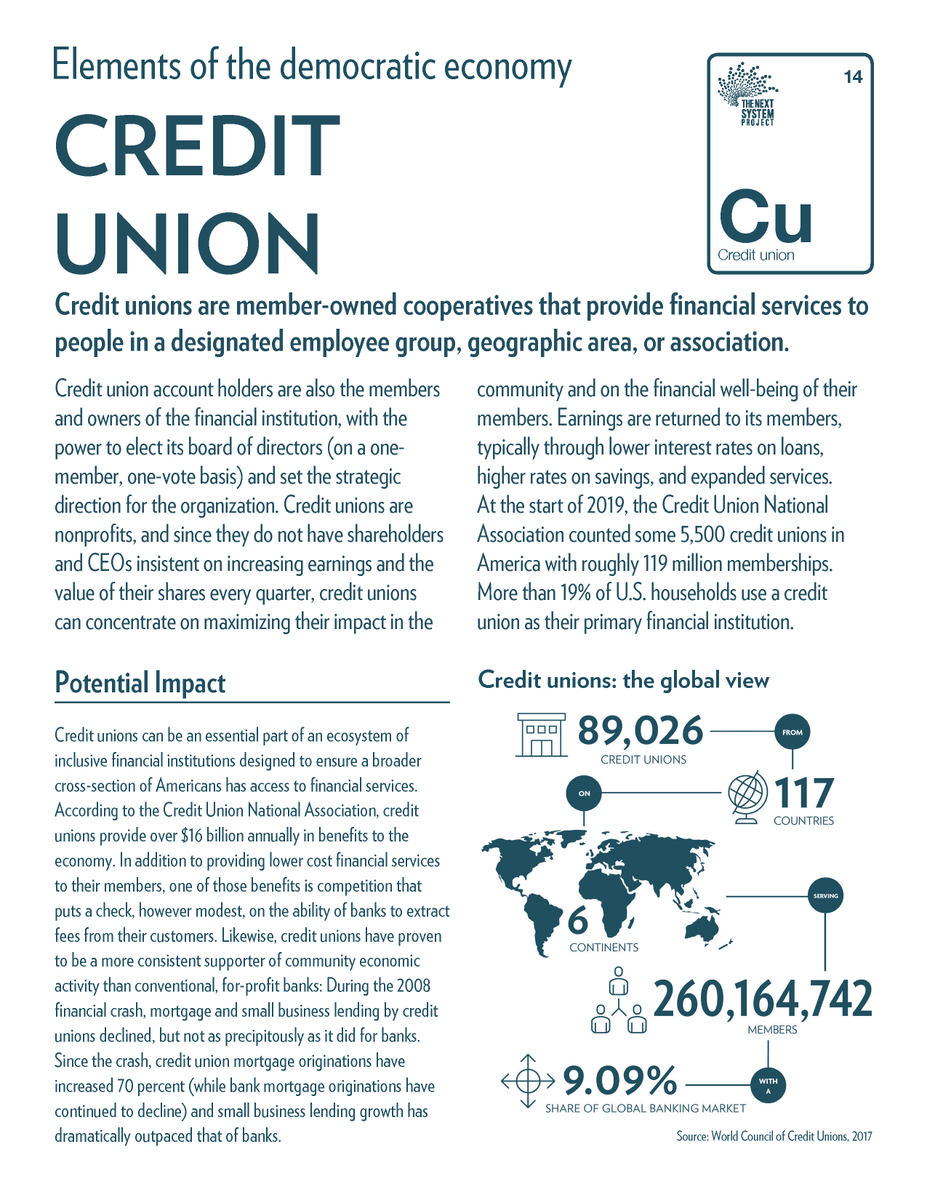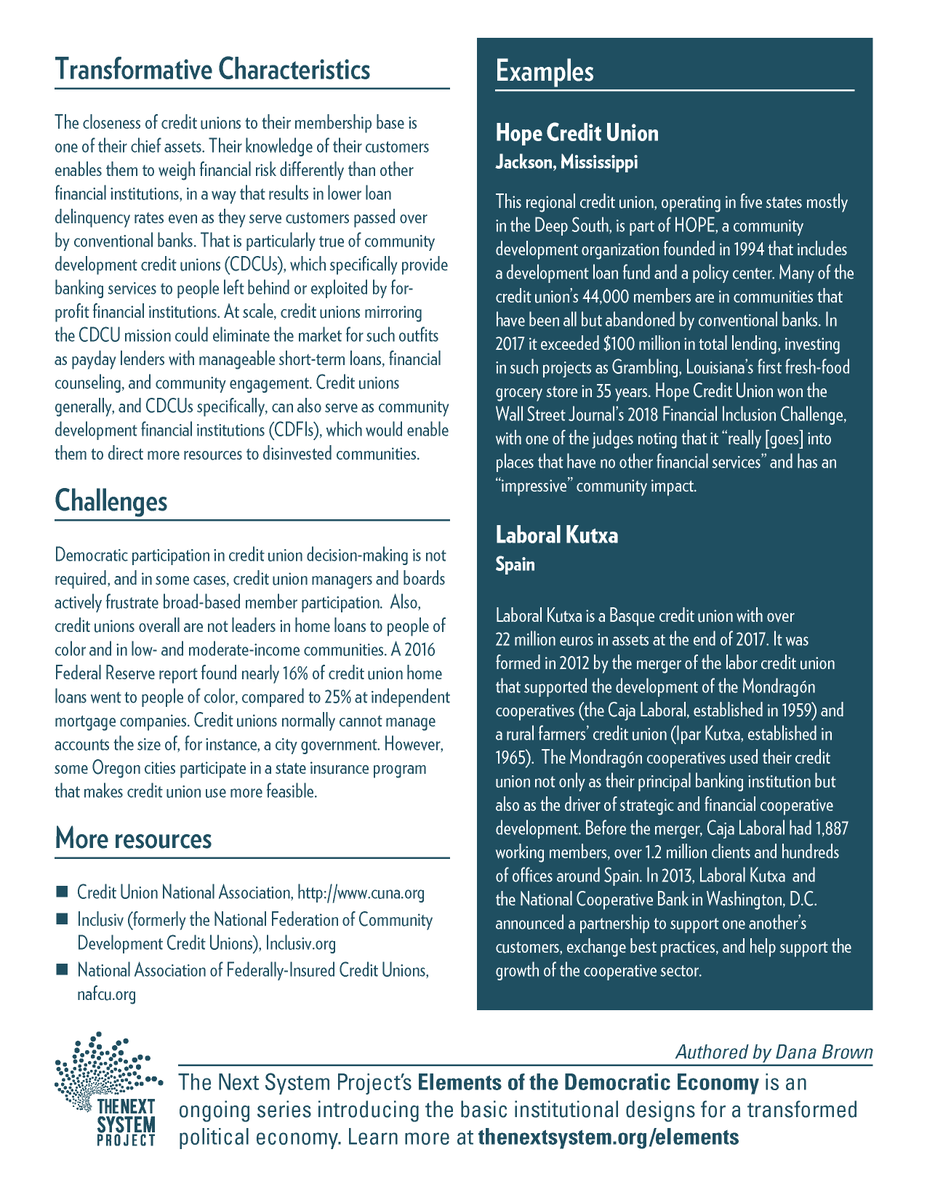As organizing momentum for a democratic economy builds, so does the need for concise, accessible intros to the concrete *elements* that would make up this kind of equitable, just, & sustainable system. That& #39;s why we& #39;re making these easy to share, quick to read onesheets...1/
A limited equity housing cooperative is a residential development owned and managed by a democratically governed, nonprofit cooperative corporation, such as a tenants’ union:
https://thenextsystem.org/learn/stories/limited-equity-housing-cooperative">https://thenextsystem.org/learn/sto... 2/
https://thenextsystem.org/learn/stories/limited-equity-housing-cooperative">https://thenextsystem.org/learn/sto... 2/
CLTs are nonprofit organizations that acquire and steward land in a “trust” for the permanent benefit of low-income communities, fighting gentrification and displacement with decommodification:
https://thenextsystem.org/learn/stories/community-land-trust">https://thenextsystem.org/learn/sto... 3/
https://thenextsystem.org/learn/stories/community-land-trust">https://thenextsystem.org/learn/sto... 3/
Green banks can help communities transition away from fossil fuels and build resilience against climate change:
https://thenextsystem.org/learn/stories/green-bank">https://thenextsystem.org/learn/sto... 4/
https://thenextsystem.org/learn/stories/green-bank">https://thenextsystem.org/learn/sto... 4/
Resident-owned communities (ROCs) are manufactured housing neighborhoods (sometimes referred to as mobile home or trailer parks) in which the land is community-owned and managed:
https://thenextsystem.org/learn/stories/resident-owned-community">https://thenextsystem.org/learn/sto... 5/
https://thenextsystem.org/learn/stories/resident-owned-community">https://thenextsystem.org/learn/sto... 5/
Public banks are financial institutions owned by and accountable to the people that help create a nonextractive economy:
https://thenextsystem.org/learn/stories/public-banks">https://thenextsystem.org/learn/sto... 6/
https://thenextsystem.org/learn/stories/public-banks">https://thenextsystem.org/learn/sto... 6/
Democratic energy utilities are nonprofits run by the public or community members in a way that enables their engagement in decision-making and distributes ownership:
https://thenextsystem.org/learn/stories/democratic-energy-utility">https://thenextsystem.org/learn/sto... 7/
https://thenextsystem.org/learn/stories/democratic-energy-utility">https://thenextsystem.org/learn/sto... 7/
Land banks can acquire abandoned, foreclosed, and tax-delinquent properties in order to convert them into productive use:
https://thenextsystem.org/learn/stories/land-bank">https://thenextsystem.org/learn/sto... 8/
https://thenextsystem.org/learn/stories/land-bank">https://thenextsystem.org/learn/sto... 8/
Community benefit agreements are legally binding products of negotiations between developers and community members who have banded together to safeguard their communities’ interests:
https://thenextsystem.org/learn/stories/community-benefit-agreement">https://thenextsystem.org/learn/sto... 9/
https://thenextsystem.org/learn/stories/community-benefit-agreement">https://thenextsystem.org/learn/sto... 9/
The commons are collective resources—encompassing things as varied as land, seed banks, and open-source software—managed by self-organized social systems under mutually acceptable terms:
https://thenextsystem.org/learn/stories/commons">https://thenextsystem.org/learn/sto... 10/
https://thenextsystem.org/learn/stories/commons">https://thenextsystem.org/learn/sto... 10/
Employee stock ownership plans (ESOPs) enable full or partial ownership of a business by its employees through a pension plan or trust:
https://thenextsystem.org/learn/stories/employee-stock-ownership-plan">https://thenextsystem.org/learn/sto... 11/
https://thenextsystem.org/learn/stories/employee-stock-ownership-plan">https://thenextsystem.org/learn/sto... 11/
Municipal enterprises are businesses or services owned by local public authorities that provide services or generate revenue for local communities:
https://thenextsystem.org/learn/stories/municipal-enterprise">https://thenextsystem.org/learn/sto... 12/
https://thenextsystem.org/learn/stories/municipal-enterprise">https://thenextsystem.org/learn/sto... 12/
Worker cooperatives provides for both democratic ownership and democratic governance of the workplace, unlike traditional businesses in which ownership is often antagonistic to the workers who create value for the firm:
https://thenextsystem.org/learn/stories/worker-cooperatives">https://thenextsystem.org/learn/sto... 13/
https://thenextsystem.org/learn/stories/worker-cooperatives">https://thenextsystem.org/learn/sto... 13/
Social wealth funds embrace the collective ownership of assets to provide services and democratically distribute resources within a society or community:
https://thenextsystem.org/learn/stories/social-wealth-fund">https://thenextsystem.org/learn/sto... 14/
https://thenextsystem.org/learn/stories/social-wealth-fund">https://thenextsystem.org/learn/sto... 14/
Credit unions are financial cooperatives owned by their account holders and can concentrate on maximizing their impact in the community and on the financial well-being of their members:
https://thenextsystem.org/learn/stories/credit-unions">https://thenextsystem.org/learn/sto... 15/
https://thenextsystem.org/learn/stories/credit-unions">https://thenextsystem.org/learn/sto... 15/
You can read, share, and download printable pdfs for all the "Elements of The Democratic Economy" here: https://thenextsystem.org/elements ">https://thenextsystem.org/elements&... ... and this is an ongoing series, so if there& #39;s something you& #39;d like to see us get to soon, let us know here! 16/16

 Read on Twitter
Read on Twitter